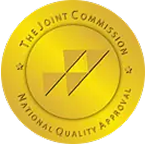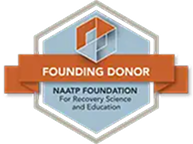What Accreditations Mean in Addiction Treatment: How to Choose the Right Program

Key Takeaways
- Accreditations such as CARF and The Joint Commission provide external, objective validation that an addiction treatment center meets rigorous standards for safety, quality, and ethical care.
- Accredited programs undergo regular on-site evaluations by outside behavioral health experts who assess clinical practices, program policies, and patient outcomes.
- For families comparing treatment options, accreditations help distinguish trustworthy, evidence-based programs from those lacking oversight.
- Fellowship Hall’s accreditations reflect its long-standing commitment to ethical, compassionate, and effective addiction care grounded in practices that support long-term recovery.
Not All Treatment Programs Are Equal
We know that choosing an addiction treatment program can feel overwhelming — especially for families who are trying to make the best decision during a stressful or urgent time. There are so many treatment centers, levels of care, and claims of “excellence” to wade through that it can be difficult to know which programs provide truly safe, ethical, evidence-based treatment.
When purchasing a home, you get an inspection. When buying electronics, you do research and gather information from trusted sources. But when you find yourself in need of substance abuse treatment for yourself or a loved one, how can you make sure you’re making the best decision?
One of the most reliable ways to evaluate a provider is by looking at its accreditations and certifications. These designations are far more than symbols or stamps of approval on a website; they represent robust, independent reviews from independent expert organizations that assess quality, safety, and clinical integrity.
Accredited programs are held to strict, measurable standards, and they are continuously monitored to ensure they maintain them. For people seeking help, addiction treatment accreditations offer peace of mind and help distinguish trustworthy programs from those lacking oversight.
What Are Addiction Treatment Accreditations?
Accreditations are formal evaluations conducted by independent organizations that specialize in measuring the quality of healthcare and behavioral health services. To earn accreditation, a treatment program must undergo a comprehensive review of its clinical practices, safety protocols, leadership, staffing, governance, and patient outcomes.
These evaluations are conducted by professionals who work in behavioral health, nursing, medicine, or quality improvement. They look at a variety of factors to confirm that a treatment center adheres to evidence-based practices and staff are properly trained, as well as how medications are handled, how records are maintained, and how the organization protects the safety and rights of patients.
An accreditation provides objective, external validation that a treatment center is committed to and maintains high standards rather than simply making empty claims about them.
Why Accreditations Matter in Addiction Treatment
The addiction treatment industry includes reputable, long-standing programs, but unfortunately, other organizations make bold promises without the clinical structure to back them up. Families often don’t realize that addiction treatment isn’t universally regulated at the federal level, leading to inconsistent quality standards that vary from state to state.
Treatment accreditation helps fill that gap and ensure the following:
- Clinical excellence – Programs are evaluated on their use of research-supported therapies, trained staff, and ethical treatment approaches.
- Patient safety – Accrediting bodies assess emergency procedures, medication management systems, infection control, and facility safety.
- Organizational integrity – This includes governance, leadership training, privacy protections, and compliance with legal standards.
- Continuous improvement – Accredited programs must regularly review and refine their processes, participate in quality monitoring, and undergo periodic re-evaluation.
A loved one needing addiction help doesn’t suddenly make you a treatment expert, so it’s important to know there are agencies out there that you can trust to help you make the right decision when it comes to getting care for a family member. Accreditations in substance use disorder (SUD) treatment serve as an external, objective validation that a facility meets and maintains rigorous standards of care, safety, and organizational integrity. They’re not just plaques on the wall; they represent a deep commitment to ethical, evidence-based treatment and continuous improvement.
Major Accrediting Bodies to Look For
For families comparing options, accreditation can help significantly narrow the choices to providers that prioritize transparency, quality, and patient-centered care.
The Joint Commission
One of the most recognized accrediting organizations in healthcare, The Joint Commission evaluates hospitals, behavioral health providers, addiction treatment centers, and outpatient clinics across the country. Their Behavioral Health Care and Human Services Accreditation signals that a program has met rigorous national standards for safety, clinical care, and organizational governance.
Commission on Accreditation of Rehabilitation Facilities (CARF)
CARF is another leading accrediting and certifying body for addiction, behavioral health, and rehabilitation programs.
A CARF accredited rehab emphasizes:
- Person-centered care
- Measurable outcomes
- Strong clinical leadership
- Risk management and safety
Other Criteria to Consider When Choosing a Treatment Program
State Licensure in another foundational requirement. While it’s not a guarantee of quality, a lack of state licensing or a lapse is a red flag. The National Association of Addiction Treatment Providers (NAATP) is a business membership association that champions addiction and mental health treatment providers by driving excellence in operations and clinical practice with a focus on ethics and best-practice guidelines.
5 Ways Accreditations Improve Quality of Care
Accreditations are not a “one and done” proposition. These milestones require ongoing compliance and regular site visits, so you can rest assured that a program isn’t resting on its laurels. No matter their reputation, they need to prove themselves on an ongoing basis.
This process reinforces safe, effective care in several important ways:
- 1. Regular Audits and Inspections – Accrediting bodies routinely evaluate treatment centers to confirm they are consistently operating at or above required standards.
- 2. Evidence-Based Practice Requirements – Accredited programs must offer therapies supported by research, modalities like Cognitive Behavioral Therapy (CBT), Motivational Interviewing (MI), Medication-Assisted Treatment (MAT), trauma-informed approaches, and more.
- 3. Staff Qualifications and Training – Clinicians must meet educational, licensure, and continuing-education standards. Programs must employ experienced physicians, therapists, and recovery professionals.
- 4. Safety and Risk Management – Ongoing safety measures include emergency response procedures, incident reporting, medication controls, and facility safety checks.
- 5. Transparency and Accountability – Accredited programs are required to maintain policies, documentation, and measurable outcomes that demonstrate their quality of care.
For families, these standards help ensure that treatment is safe, ethical, and aligned with proven methods of long-term recovery.
What Fellowship Hall’s Accreditations Mean for Patients and Families
Fellowship Hall has been accredited by The Joint Commission since 1974, reflecting our commitment to high-quality, compassionate addiction treatment. Accreditations like this demonstrate that our programs, policies, and practices are regularly reviewed by independent experts who specialize in behavioral health. This process ensures we meet national benchmarks for clinical excellence, patient safety, and organizational governance.
Accreditations reflect the quality of care people can expect at Fellowship Hall. They and their families can be assured they will receive care that is compassionate, professional, and grounded in practices proven to support long-term recovery.
Fellowship Hall also supports its quality standards through:
- Over 50-year history of nonprofit, mission-driven service
- Experienced clinical staff specializing in substance use disorders
- Evidence-based programming, including individual therapy, group therapy, 12-step facilitation, and family programming
- A full continuum of care, including Residential Treatment and Outpatient Services
Together, these elements help patients access safe, respectful, clinically grounded care designed to support lasting recovery.
How to Use Accreditations When Comparing Treatment Programs
When evaluating addiction treatment options, families can feel confident using accreditations as a starting point, but beyond looking for an accreditation symbol on a program’s website, what should you ask?
Key Questions to Ask
- Is the program accredited by The Joint Commission or CARF?
- How recently was the accreditation renewed?
- Are the program’s clinical approaches evidence-based?
- What is the staff’s level of clinical training and experience?
- Does the center offer continuing care or aftercare support?
Red Flags to Watch For
- No clear accreditation or licensure listed
- Overpromising outcomes that seem too good to be true, like a “100% success rate”
- Lack of medical staff
- Limited information on clinical practices or safety protocols
Accreditations alone don’t determine whether a program is the right fit, but they help ensure a baseline of quality and safety.
Choosing the Right Addiction Treatment Program
Accreditations provide an essential layer of trust, but there are other factors for a family to consider in order to find the program that is the best fit for their loved one.
Other factors include:
- The level of care needed
- The program’s philosophy
- Specialized services (trauma-informed care, co-occurring disorder treatment)
- Location and environment
- Family involvement
- Aftercare planning and alumni support
By combining accreditation status with these practical considerations, families can make an informed, confident choice.
Accreditations serve as a powerful indicator of quality in an industry where standards can vary widely. They demonstrate that a program is committed to ethical, evidence-based treatment and willing to undergo rigorous external review.
Fellowship Hall’s accreditations reflect its adherence to Joint Commission standards and a long-standing dedication to clinical excellence, safety, and compassionate care — helping individuals and families begin recovery with confidence and support. If you’re ready to explore all we have to offer, reach out to our Admissions Team today.
FAQs
What does it mean if a rehab is accredited?
Accreditation means the program has met strict standards set by independent organizations that evaluate the safety, quality, and effectiveness of addiction treatment services.
What’s the difference between CARF and The Joint Commission?
Both are respected accrediting bodies. The Joint Commission is widely recognized across healthcare settings, while CARF focuses heavily on rehabilitation and person-centered care.
Are accreditations required for addiction treatment centers?
Not always. Requirements vary by state. However, accreditation is a strong indicator that a program voluntarily meets national quality benchmarks.
How can I verify a program’s accreditation?
You can check directly on the accrediting body’s website (CARF or The Joint Commission) or ask the treatment center for its accreditation status and survey results.
Sources
- The Joint Commission. https://www.jointcommission.org/en-us.
- CARF International. https://carf.org/.
- National Association of Addiction Treatment Providers (NAATP). Industry Accreditations & Affiliations. https://www.naatp.org/.
"*" indicates required fields
CONNECT WITH US
Our Admissions Staff Is Here to Help
Not sure if you or someone you love needs help? Call our Admissions Staff who can help you assess the next step at 336-553-6596."*" indicates required fields






